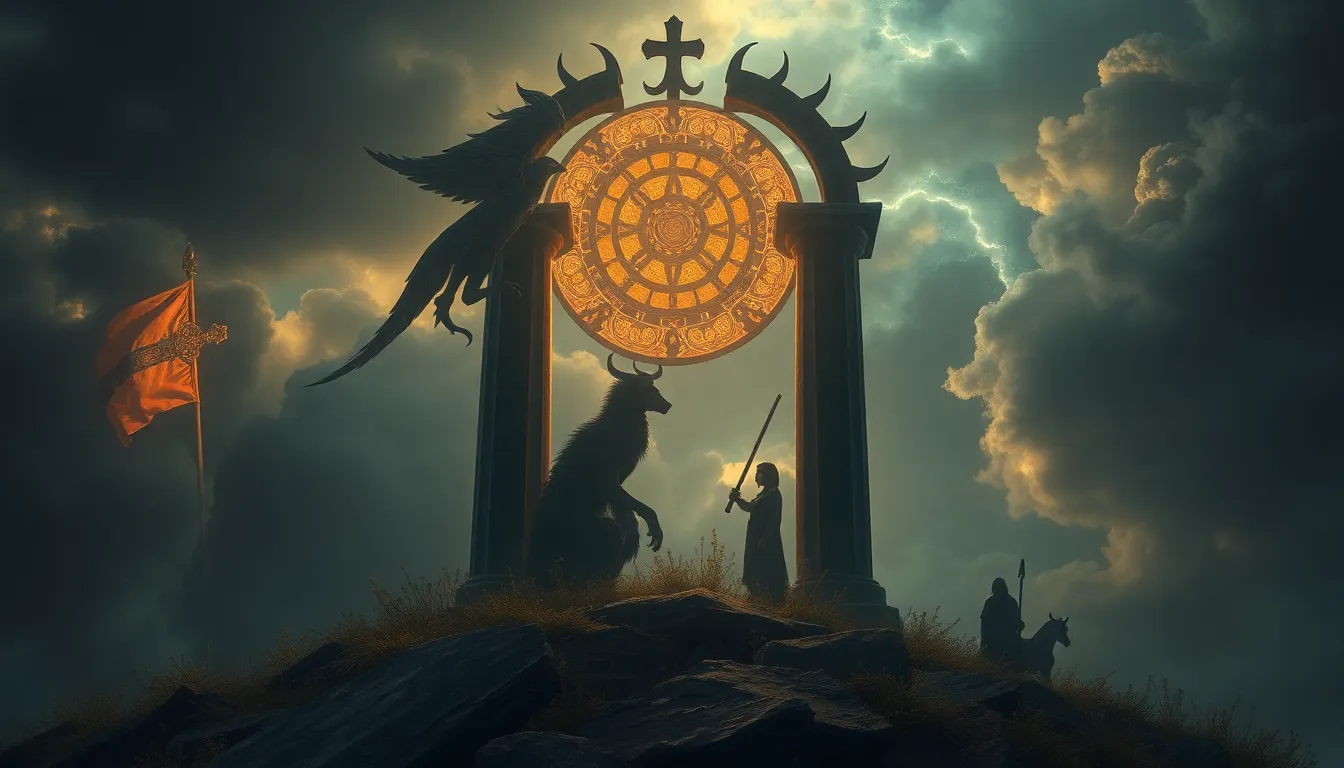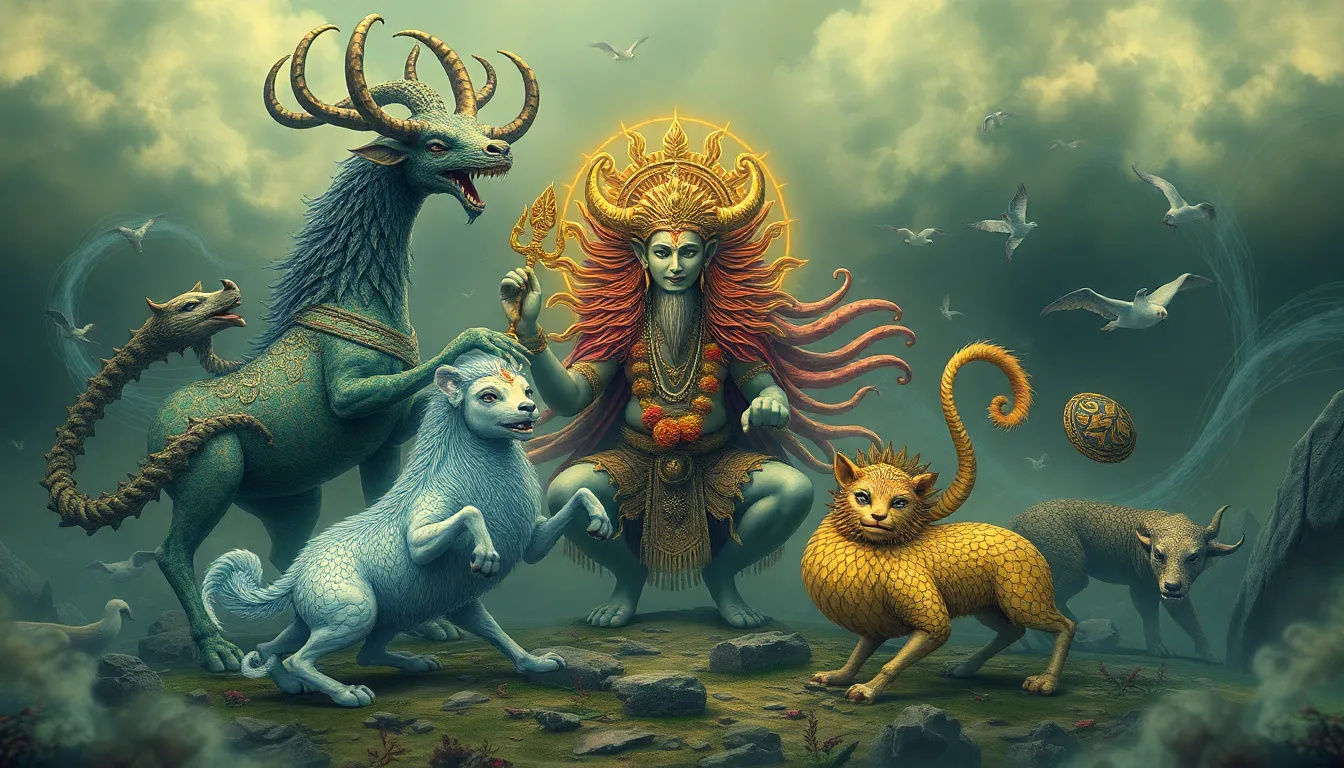The Mythological Arsenal: The Weapons That Shaped Legends
I. Introduction
Mythological weapons are legendary armaments that often embody the essence of the heroes and deities who wield them. These artifacts are not merely tools of destruction; they carry profound meanings and cultural significance, often reflecting the values and beliefs of the societies from which they originate. In this article, we will explore the origins of these mythological weapons, delve into iconic examples and their legends, examine the symbolism behind them, and discuss their impact on modern culture.
II. The Origins of Mythological Weapons
The creation of weapons in mythology is deeply rooted in the historical context of ancient societies. From the earliest days of civilization, weapons have been crafted to serve both practical and symbolic purposes. In many cultures, weaponry was not just a means of survival but a representation of power, honor, and divine favor.
Cultural perspectives on weaponry vary significantly; for instance, in ancient Greece, weapons were often seen as gifts from the gods, while in Mesopotamia, they were meticulously crafted by skilled artisans. The role of craftsmanship is crucial, as many mythological weapons are said to be forged by divine beings or out of extraordinary materials, showcasing the intersection of human skill and divine intervention.
III. Iconic Mythological Weapons and Their Legends
A. Excalibur: The Sword of Kings
Excalibur, the legendary sword of King Arthur, symbolizes rightful sovereignty and heroic duty. Its origins are steeped in mystique; some tales suggest it was given to Arthur by the Lady of the Lake, while others claim it was the sword he pulled from the stone, proving his worthiness as king.
- Significance: Excalibur represents the ideal of leadership and the moral obligations of a ruler.
- Symbolism: The sword is often associated with power, justice, and the divine right to rule.
B. Mjölnir: Thor’s Hammer
In Norse mythology, Mjölnir is the hammer of Thor, the god of thunder. This formidable weapon is not only a tool of destruction but also a powerful symbol of protection for humanity.
- Description: Mjölnir is depicted as a short-handled hammer capable of leveling mountains.
- Capabilities: It returns to Thor after being thrown, showcasing the theme of divine retribution and protection.
C. The Trident of Poseidon
Poseidon, the Greek god of the sea, wields a trident that symbolizes his dominion over the oceans and earthquakes. This weapon is a potent symbol in Greek culture, often associated with maritime lore and the power of nature.
- Mythological Background: The trident is said to have been created by the Cyclopes and grants its wielder control over waters.
- Influence: Poseidon’s trident has become a universal symbol of the sea and its mysteries.
IV. Weapons of the Gods: Divine Tools of War
Many mythologies feature weapons that are not only powerful but also imbued with divine significance. These weapons often serve as tools of war, wielded by gods and demigods.
- The Spear of Destiny: Found in various mythologies, it is said to grant victory in battle.
- The Bow of Artemis: This weapon symbolizes purity and hunting prowess, emphasizing the balance between nature and civilization.
Comparing divine weapons across cultures reveals common themes of authority, protection, and the complex relationship between mortals and the divine.
V. Legendary Heroes and Their Signature Weapons
Throughout mythology, many heroes are defined by their signature weapons, which often play a crucial role in their narratives.
- Achilles’ Spear: Used in the Trojan War, it symbolizes strength and tragedy.
- Beowulf’s Sword: Known as Hrunting, this blade is central to Beowulf’s legacy and his battles against monsters.
- The Bow of Odysseus: A symbol of cunning and skill, it represents Odysseus’s rightful place as king.
VI. The Symbolism Behind Mythological Weapons
Mythological weapons often represent broader themes such as power, justice, and chaos. They embody the struggle between good and evil and serve as extensions of their wielders’ identities.
The psychological implications of wielding a weapon are profound; they can signify authority, invoke fear, or inspire courage. Over time, many mythologies transitioned from physical confrontations to symbolic warfare, where the battles were fought in the minds and hearts of the people.
VII. The Impact of Mythological Weapons on Popular Culture
Mythological weapons have transcended their ancient origins and found renewed life in modern literature, film, and gaming culture.
- Adaptations: Many films and books have reimagined legendary weapons, making them accessible to contemporary audiences.
- Resurgence: The renewed interest in mythology has led to a resurgence of mythological weapons in popular media.
- Gaming Culture: Characters in video games often wield iconic mythological weapons, influencing character design and gameplay mechanics.
VIII. The Evolution of Mythological Weaponry
Over time, the design and significance of mythological weapons have evolved. Many have fused traditional motifs with modern storytelling techniques, reflecting contemporary values and aesthetics.
As technology advances, so do the interpretations of these weapons, blending myth with innovation and leading to new narratives that resonate with today’s audiences.
IX. The Legacy of Mythological Weapons
The themes surrounding mythological weapons continue to endure in modern society, offering lessons about conflict, power, and morality. They remind us of the complexities of human nature and the eternal struggle between good and evil.
The fascination with legendary armaments persists, as they serve as symbols of hope, protection, and the exploration of our cultural identities.
X. Conclusion
In conclusion, mythological weapons are more than mere tools of war; they encapsulate the ideals, conflicts, and narratives of the cultures that created them. From Excalibur to Mjölnir, these legendary armaments continue to shape our understanding of heroism and power. As we explore their origins, significance, and impact on modern culture, we uncover the timeless allure of these extraordinary weapons.




